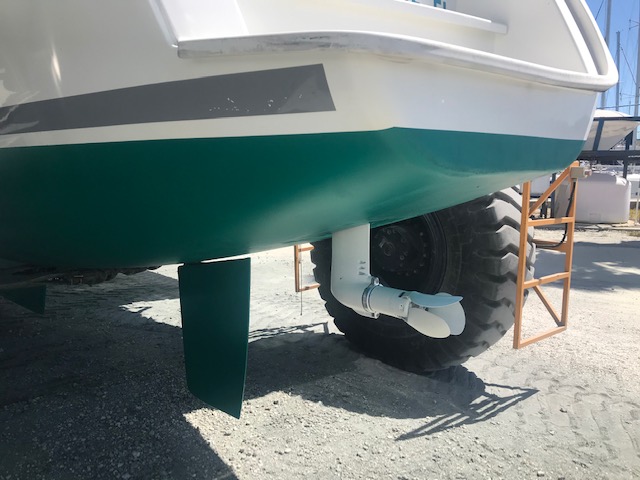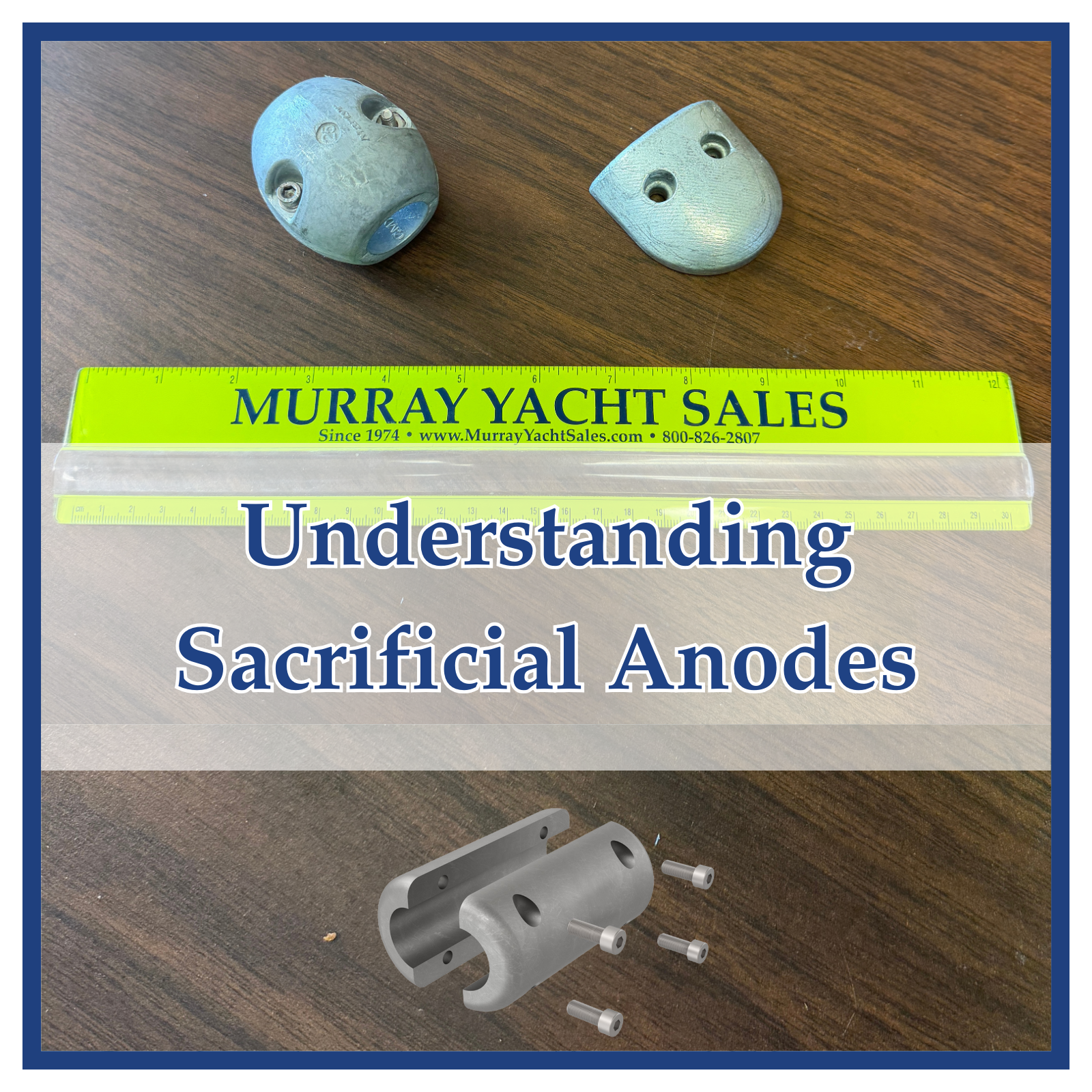If you’ve ever noticed small, gray lumps of metal bolted to your boat’s hull, prop shaft, rudder, or outdrive, you’ve seen sacrificial anodes at work. They may not look like much, but these humble pieces of metal quietly save you thousands of dollars by protecting your underwater hardware from one of boating’s sneakiest enemies: galvanic corrosion.
What Are Sacrificial Anodes?
A sacrificial anode is a piece of metal, typically made of zinc, aluminum, or magnesium, that’s purposely designed to corrode. It’s attached to your boat’s vulnerable underwater components so that it corrodes instead of them. The anode quite literally “sacrifices” itself, sparing your hull, propeller, or drive system from damage.
It’s simple, effective, and one of the most important defenses your boat has against corrosion.

How They Work: The Science of Cathodic Protection
When two different metals are immersed in water (especially saltwater), they form a weak electrical current—just like a battery. The less noble (or more “active”) metal becomes the anode and begins to corrode, while the more noble metal becomes the cathode and stays protected.
Sacrificial anodes take advantage of this process. By attaching a more reactive metal to your boat’s components, the anode corrodes first, saving the more valuable parts from damage. For an anode to do its job effectively, it needs:
- Good electrical contact – It must be cleanly connected to the metal it’s protecting.
- Direct exposure to water – Never paint over an anode; doing so insulates it and renders it useless.
Think of it like a lightning rod for corrosion – it takes the hit so your boat doesn’t have to.

Choosing the Right Type of Anode (Zinc vs Aluminum vs Magnesium)
Not all anodes are created equal. The type you use depends entirely on where you keep and use your boat.
| Water Type | Recommended Material | Notes |
|---|---|---|
| Freshwater | Magnesium | Highly active and ideal for freshwater’s low conductivity. Don’t use in salt or brackish water—it corrodes too fast. |
| Saltwater | Zinc or Aluminum | Zinc is the traditional choice; aluminum is more modern, longer-lasting, and environmentally friendly. |
| Brackish Water | Aluminum | Performs well in both fresh and saltwater, making it the best all-around choice for mixed environments. |
While magnesium is ideal for freshwater, there are environmental reasons to be cautious about using it—especially in smaller lakes or enclosed bodies of water. Magnesium anodes can sometimes provide too much protection, a condition known as over-protection, which leads to calcareous buildup on metal surfaces. This buildup can alter the surrounding water chemistry and negatively affect aquatic life. Additionally, while magnesium is considered less toxic than other anode materials, large-scale or cumulative use could gradually increase dissolved magnesium levels in the water, potentially impacting the delicate balance of freshwater ecosystems.
The All-Around Option: Aluminum
If your boating takes you between fresh, brackish, and salt water, aluminum is your best bet. It performs well across water types and remains active even when exposed to air.
Maintenance: A Small Task With Big Payoff
Inspect your anodes regularly – at least once a year and/or every time you haul out your boat. If they’ve worn away to about half their original size, it’s time to replace them.
This is one of the most cost-effective maintenance items you can do. Replacing a $20 anode can prevent thousands of dollars in damage to your prop shafts, outdrives, and thru-hulls.
A Few Final Tips
- Never mix metals on the same bonding system (for example, don’t combine zinc and aluminum anodes on the same protected surface).
- Avoid using magnesium in saltwater or brackish water as it corrodes too aggressively.
- Don’t ignore anodes that stop corroding; this could indicate a poor electrical connection or a coating that’s blocking contact with the water.
Eco-Conscious Boating: Protecting Your Boat and the Water
Corrosion prevention doesn’t have to come at the expense of the environment. When replacing your anodes, always dispose of the old ones properly—don’t toss them overboard or into the marina dumpster. Many boatyards and recycling centers accept used anodes as scrap metal, ensuring they’re handled responsibly.
If you keep your boat in a freshwater lake or environmentally sensitive area, be mindful of how often and where you use magnesium anodes. Over-protection and the buildup of dissolved metals can affect local water chemistry and aquatic life. Aluminum anodes, especially modern alloys, often strike the best balance between protection, longevity, and environmental impact.
Being a responsible boater means not only caring for your vessel but also the waters you explore. A little awareness about your anode choices can go a long way toward keeping both in great condition for years to come.
Sacrificial anodes (or a blog post about them) may not be glamorous, but they’re one of the hardest-working parts of your boat. Whether you’re cruising the Emerald Coast, fishing in brackish bayous, or “Looping” in your trawler, the right anode keeps your boat’s vital metal components safe from the relentless effects of corrosion.
A few minutes of inspection and the right metal choice can make all the difference between a long, healthy boating season and a costly repair bill.

